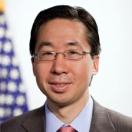
It has been nearly a year since the Senate passed a strongly bipartisan immigration reform bill that would fix our broken immigration system, reduce federal deficits by nearly $850 billion, and increase GDP by $1.4 trillion over the next two decades. As the economic costs of inaction continue to grow, now is the time for the House of Representatives to do its part to get a commonsense immigration reform bill to the President’s desk. Simply put: The House can and should act before August.
Throughout this week, we will highlight the urgency and importance of attracting the best and brightest talent from around the world, especially in the fields of science, technology, engineering, and math (STEM). The Senate bill would effectively “staple” a green card to the diplomas of advanced STEM graduates from U.S. universities, so that these talented researchers have a chance to stay and contribute to our economy.
Every foreign-born graduate with an advanced STEM degree is associated with, on average, 2.6 jobs for American workers. By some estimates, immigration was responsible for one-third of the growth in patenting in past decades, and these innovations contributed to increasing U.S. GDP by 2.4 percent.
When President Obama delivered the commencement address at the University of California, Irvine this past weekend, he told the story of just one of these talented graduates:
There are people here who know what it means to dream. When Mohamad Abedi was a boy, the suffering he saw in refugee camps in Lebanon didn’t drive him into despair -- it inspired him to become a doctor. And when he came to America, he discovered a passion for engineering. So here, at UC Irvine, he became a biomedical engineer to study the human brain. And Mohamad said, “Had I never come to the United States, I would have never had the ability to do the work that I’m doing.” He’s now going to CalTech to keep doing that work.
Today’s advanced STEM graduate could be tomorrow’s world-class, world-changing scientist. After all, one recent study looked at all U.S.-based Nobel laureates over the past 50 years, and found that 26 percent were foreign born.
When the President recently met with America’s nine most recently minted Nobel laureates in the Oval Office, we asked them to share their perspective on the importance of immigration reform. As you might imagine, these pioneering biologists, chemists, and economists had a great deal to say about the importance of maintaining America’s competitive advantage as a magnet for global talent:
As the President has repeatedly emphasized, America needs a 21st century immigration system — one that strengthens border security, cracks down on employers that hire and exploit undocumented workers, creates a pathway to earned citizenship for undocumented immigrants, and removes obstacles to legal immigration. A system that welcomes the best and brightest scientists, engineers, and entrepreneurs from around the world to innovate here in America.
It doesn’t take a Nobel Prize winner to understand that the time is now.


